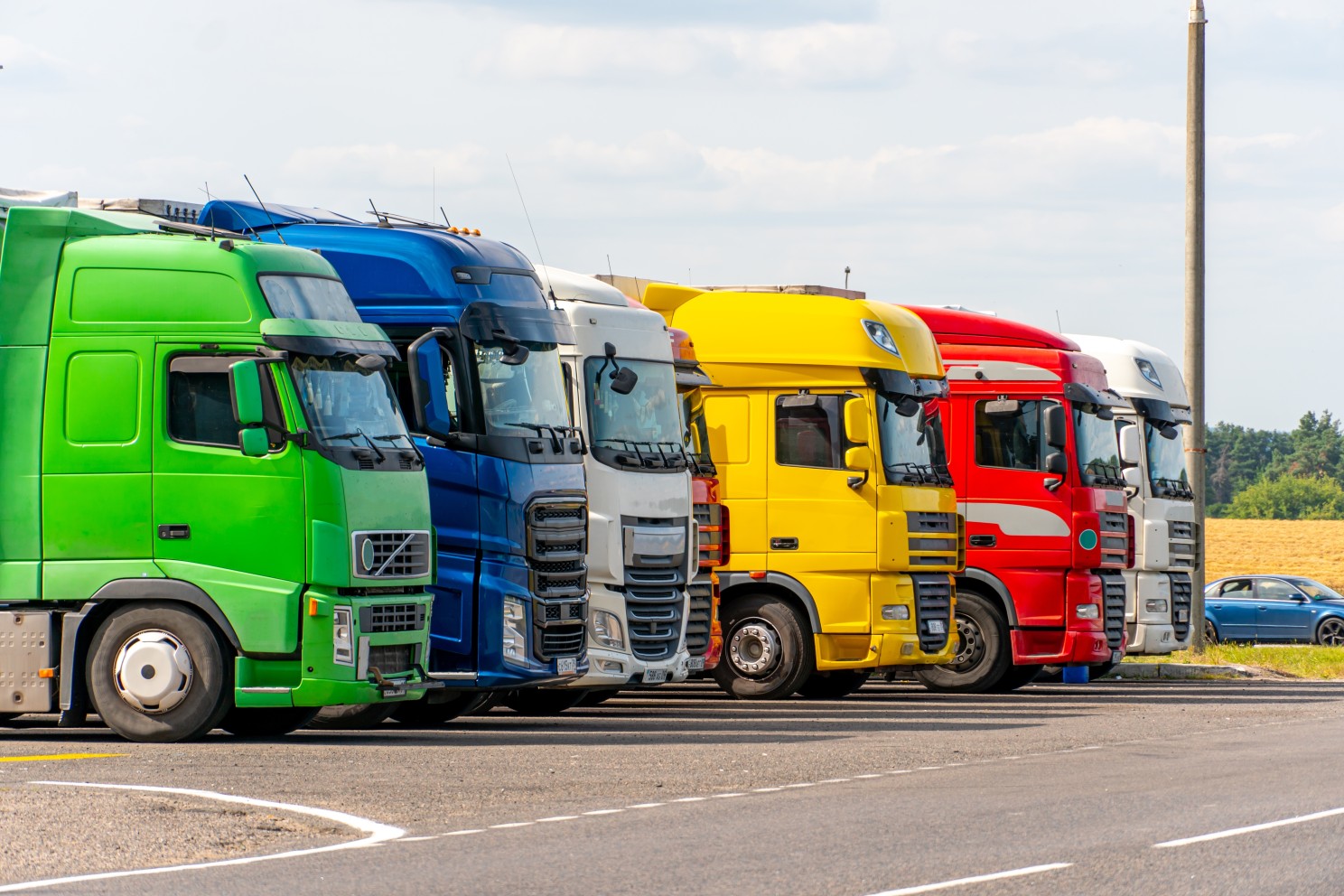
Susie Jones
Trucker tales: stories from the open road
Created: 22/08/2024
•
Updated: 22/08/2024
We want to shine a light on the trucking community and get to know the people behind the wheel.
From helicopters landing in front of their trucks to cars on the wrong side of the motorway, learn more about the drivers delivering your goods.
Alan
Alan has been driving for 23 years and decided to join the industry after listening to Ally Thomson's truck-driving songs. When asked what he loves the most about the job, he states it's "the solitude that truck driving brings - there is a complete separation from home life."
Volvo trucks are a firm favourite, as he travels across the UK transporting Amazon goods. He says he has transported lots of interesting products, "the choice is limitless - just think of anything Amazon sells."
For drivers parking overnight, keeping entertained during downtime is difficult. However, experienced drivers like Alan have got their evening routine down to a tee. He states he "likes to watch Sky TV through the iPad" when parked for the night.
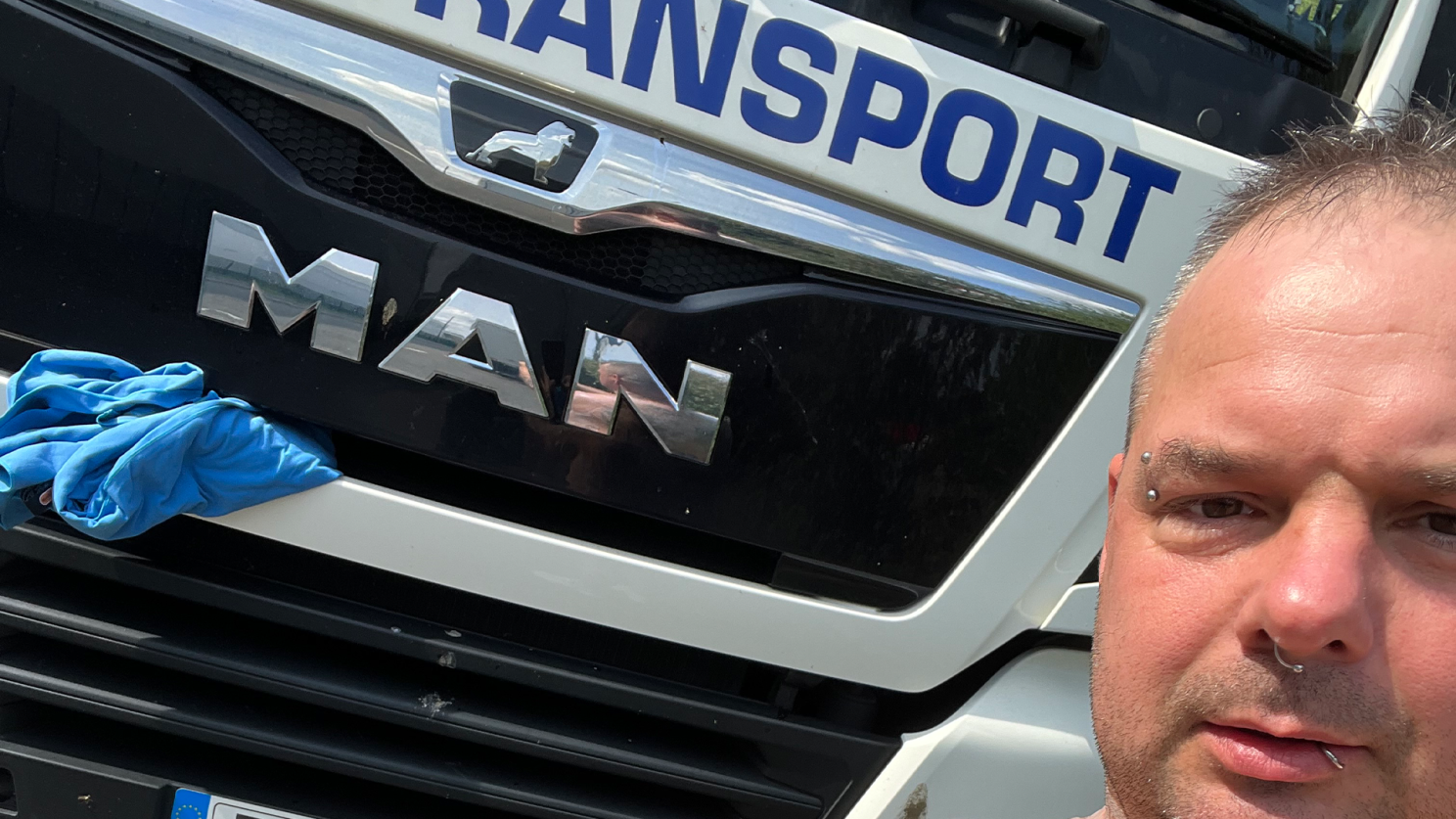
For drivers struggling to remain entertained behind the wheel, we've collated a list of ways to prevent boredom from kicking in.
While long hours on the road may seem monotonous to many, Alan explains there is always something to keep him on his toes.
"I think the craziest thing I've seen while driving is a helicopter landing right in front of me," he explains - a far cry from the monotonous reputation that has shrouded the industry for decades.
With 23 years in this industry behind him, Alan has offered some advice that will keep your pearly whites looking fresh on your travels.
He explains, "the advice I would give to anyone new to the industry is to always remember to keep your toothbrush charged."
Richard
36 years ago, Richard started his career in the haulage industry and never looked back. He caught the driving bug when he joined his two older brothers to help deliver goods across the UK.
"I love getting a load and setting off. I get to decide when I have a break and where I park. Being on the road and travelling all over the UK is great," he explains.
During his career, life on the road has taken him to Milan, Italy - a gruelling journey even for the most experienced drivers. When asked how he keeps himself entertained on his travels, he states, "I like to listen to music and watch films during my downtime."
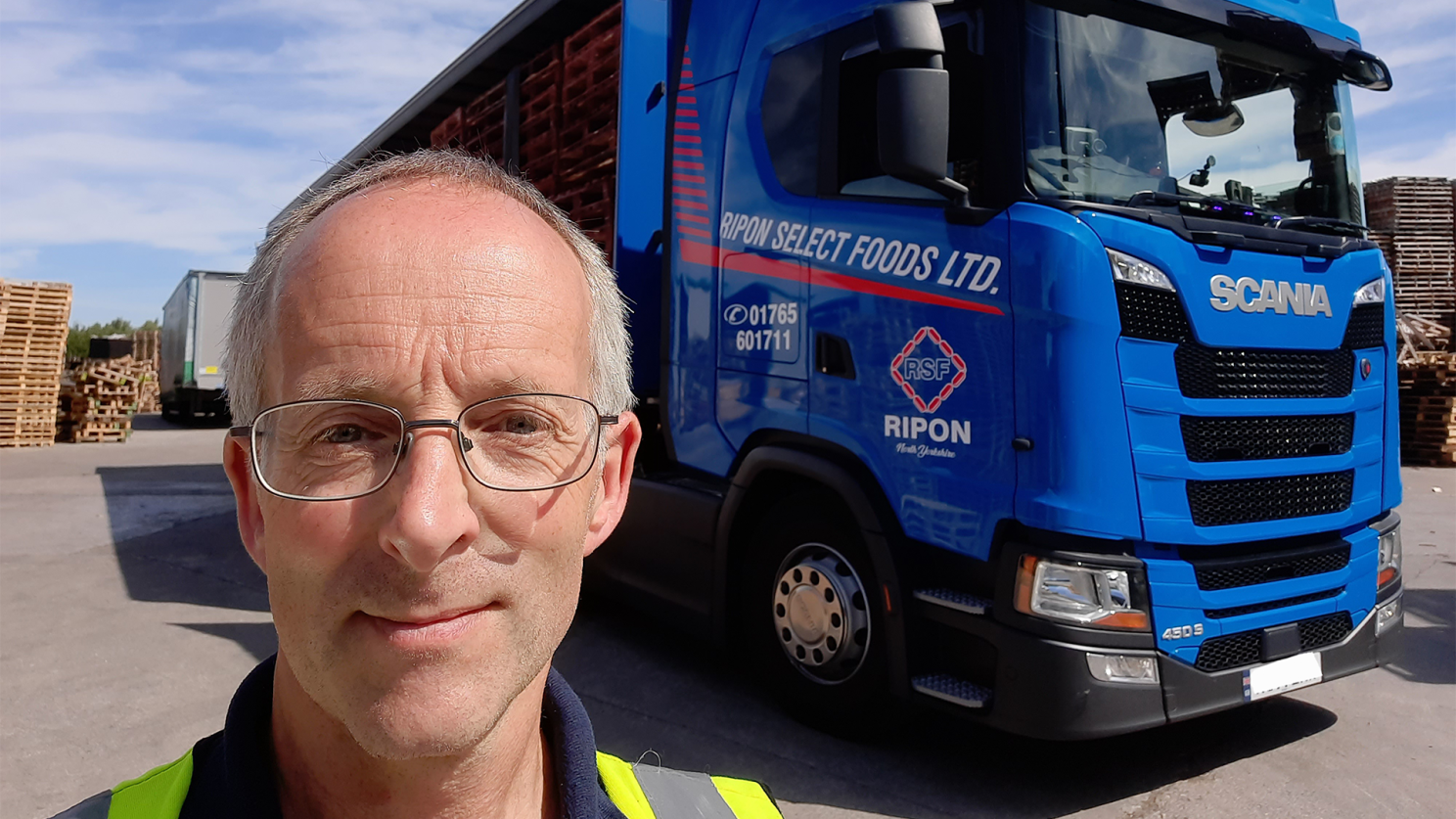
The best truck to do this in? "It has got to be a Scania Next Generation 450S," he says.
For Richard, 30 years in the industry has not come without its fair share of crazy stories and unusual deliveries, "I've seen a car going the wrong way up a motorway, coming off a slip road. The most interesting thing I've had in the back of the truck is a St. Wilfred's Day parade float."
Although he still loves the open road, Richard states that it sometimes comes at a price. He offers great insight into the reality of this profession and advice for those looking to join the industry.
"Think very carefully if this is the right career for you. Expect long hours and missing lots of family life."
Sean
Growing up in a family of drivers meant trucking was in Sean's blood, and 20 years ago, he got behind the wheel and pursued his career in the haulage industry.
The job comes with many perks, but for Sean, the freedom the job offers is what he loves the most. This freedom has taken him as far as Scotland for a six-weekly service. On those long journeys, phoning friends and watching TV are his source of entertainment.
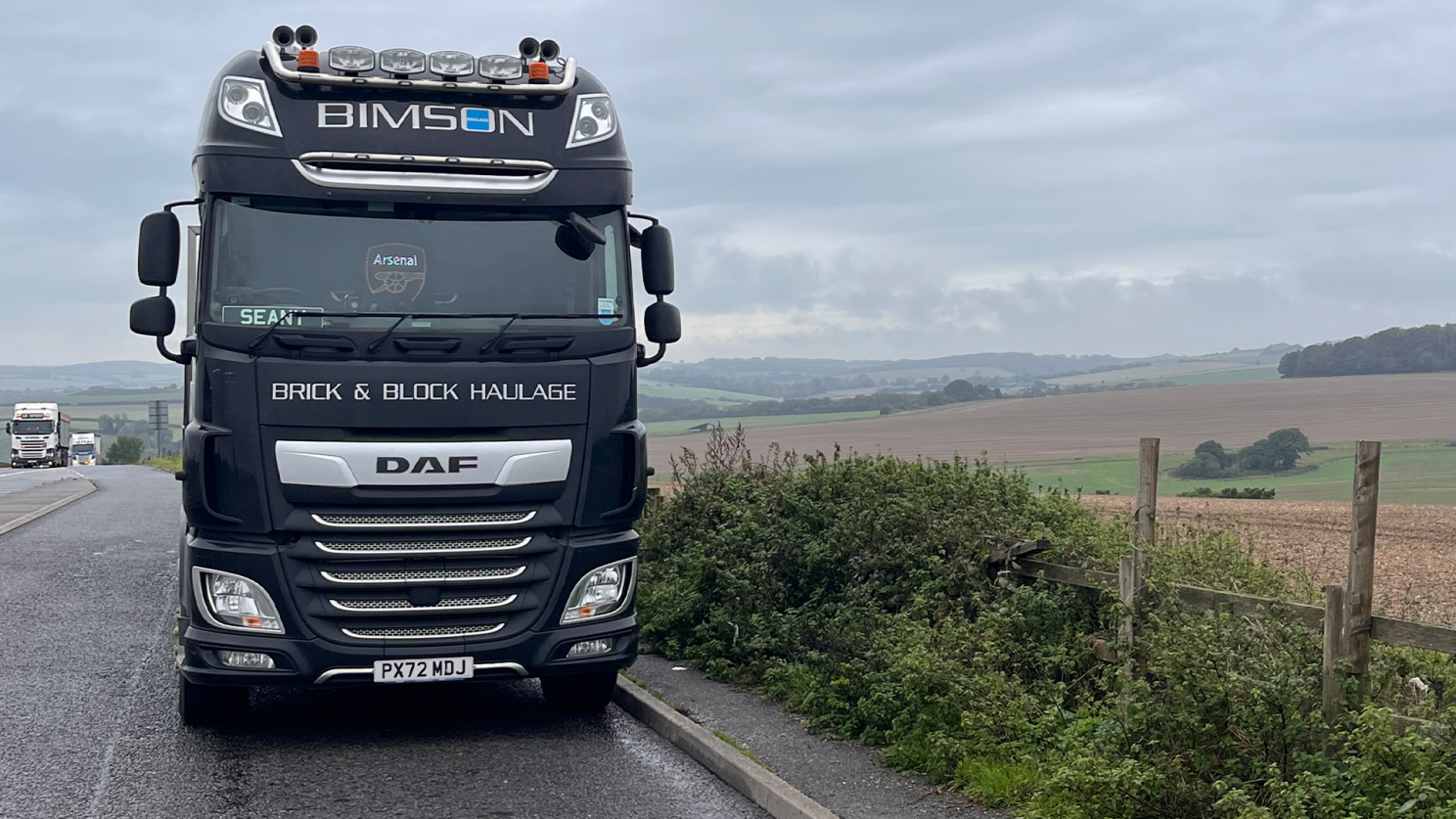
Additionally, truck stops have played a pivotal role for Sean to combat the isolation that driving brings. Often a hive of activity, truck stops allow Sean to catch up with friends on his travels.
These pit stops present the perfect opportunity to hear crazy stories from other truck drivers. Similarly to Richard, the strangest thing Sean has seen on his travels has been "a car going the wrong way up a motorway in the dark" - a story all too common among the trucking community.
A DAF XF 530 is Sean's truck of choice for transporting building materials across the UK. He advises anyone looking for a career in trucking to "just go for it!"
Dave
Dave has been driving trucks for 30 years and has travelled as far as Denmark and Spain. When he's not travelling in his favourite truck, a Volvo FH, he likes to watch soaps in the comfort of his cab.
"The behaviour of some car drivers has given me some crazy stories to tell," he explains. However, when we asked Dave about the most interesting thing he's had in the back of his truck, he remains tight-lipped - "it's top secret," he states.
After 30 years of transporting goods, Dave has learned a few things about the haulage world. He offers great advice to those looking to kickstart their career in the industry - "make sure you specialise in something."
Alastair
Relatively new to the industry, Alastair decided to pursue a career in truck driving to keep himself busy after retirement. With five years under his belt, he enjoys the variety of the profession more than anything else.
During this time, Alastair has been able to travel across the UK and Europe, "I've travelled to Inverness, Copenhagen, Lisbon, Budapest, and Rome," he states.
To prevent boredom from kicking in, Alastair enjoys listening to "Radio 4, LBC, and 5 Live."
Travelling across Europe, he has witnessed his fair share of unusual behaviour from other road users. However, it was closer to home where he had to manoeuvre his truck through "the demonstrations in London. It was probably the craziest thing I've experienced," he explains.
For the 007 fans, Alastair shares the time he had to transport some top-secret items.
"The most interesting item I've had in the back of the truck would probably be James Bond exhibition items," he states.
Although Alastair hasn't been in this industry for long, he has some words for those new to the industry.
"Some advice I'd give to someone thinking about joining the haulage world is to stay calm."
Sean V
Sean's love for the road stems back to many summer holidays spent with his dad travelling in his truck. After 30 years of driving, his love for driving continues to grow strong.
"What I love about the job is seeing all the nice places in the UK and Europe," he explains. It's a job that has taken him to various destinations - Rome being the furthest he’s travelled.
When he's not exploring the towns and cities, Sean likes to entertain himself by watching TV, using his iPad, and up until recently, gaming in the comfort of his own cab.
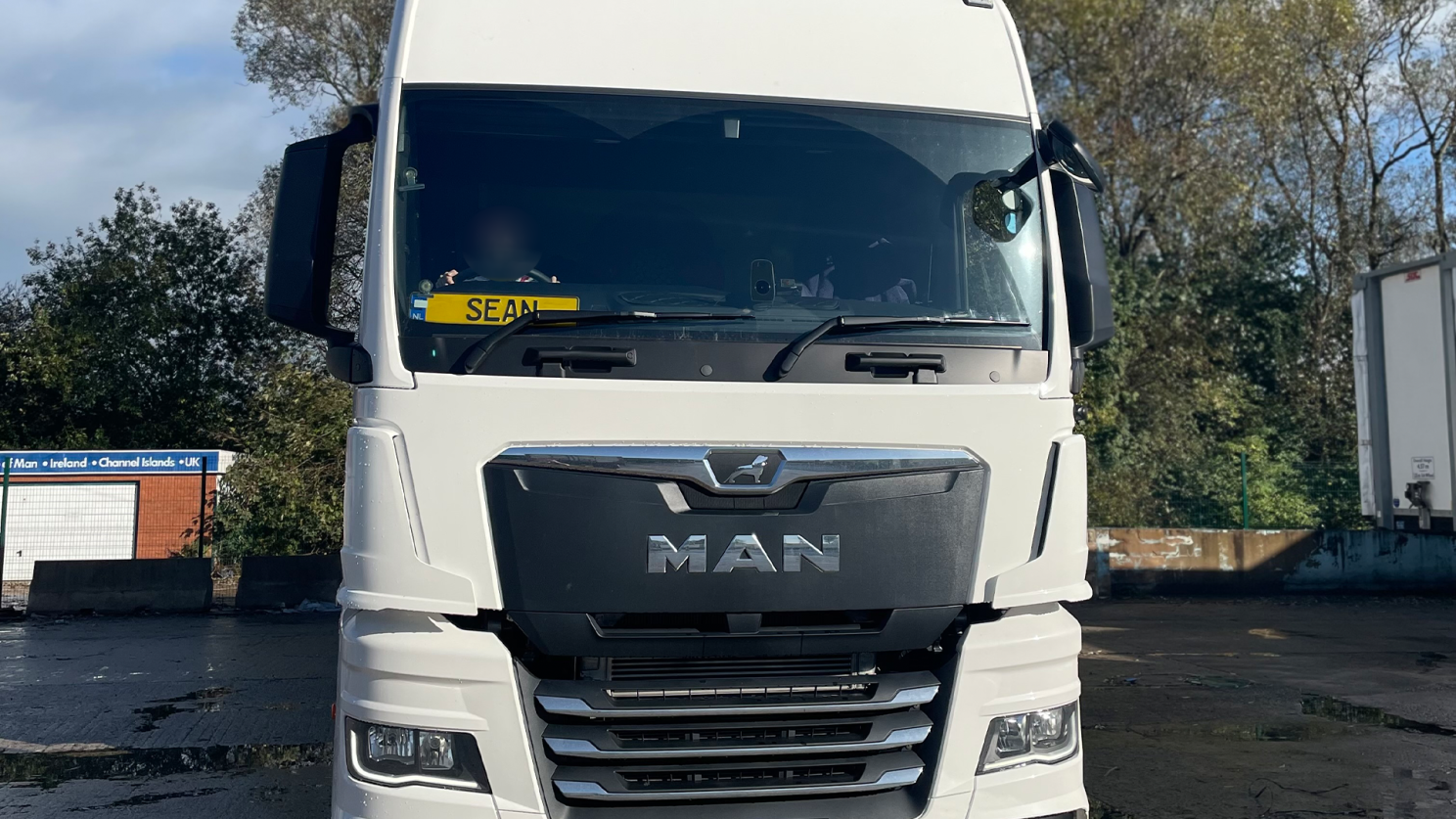
The craziest thing he's witnessed on the road?
Unfortunately, Sean is another to witness a sight that is all too common among truck drivers - "a car travelling the wrong way on the motorway," he explains.
During Sean's 30-year career, he states that DAF trucks have been his favourite to drive, and the most interesting item he's transported was "specialist medical equipment."
Sean's love for the industry outweighs some of the negative aspects of the job. However, for those looking to kickstart their career in the haulage industry, he has these wise words to offer them:
"If you're thinking of joining the industry, expect to be doing long hours."
Sign up with SNAP today
SNAP makes your life easier by connecting you to our vast network of road transport services. Sign up today.


